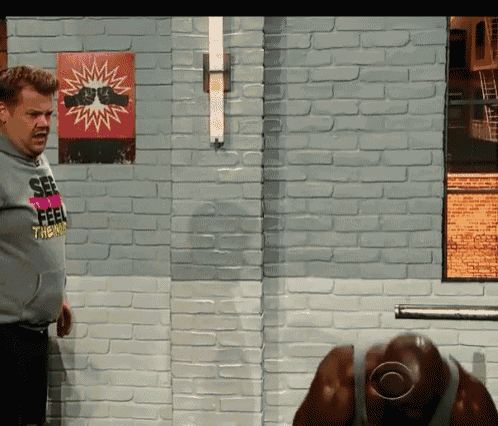How Exercise Increases Confidence
If you want to feel more confident, exercise can be just what you need. You might think exercise builds confidence by changing the way you look, but there’s much more to it than that.
In fact, the most meaningful confidence boost from exercise has nothing to do with the way your body looks.
Before I start, I want to acknowledge that for many people, confidence is closely tied to body image. Our society still largely values physical appearance, and while that’s not right, it’s real. I’m not here to tell anyone that they should abandon their physical appearance goals.
But even if you have what’s considered an “ideal” physical appearance, that’s no guarantee that you’ll feel good. Plenty of beautiful people suffer from low self-esteem.
True confidence runs deeper. It’s knowing that you’re strong and capable of overcoming challenges. It’s feeling proud of your choices and actions.
Exercise can help with that.
A Quick Story About An Octopus
Hear me out…
Many years ago, my husband and I watched a documentary about octopi. We learned that an octopus can squeeze itself through tiny spaces. It’s limited only by its beak, which is the one hard structure in its body that it’s not able to compress or contort. If a gap between two rocks is even just slightly bigger than the size of its beak, the octopus will fit through.
The documentary showed footage of an octopus making its way through a maze with various size openings in the walls. The animal would feel the space with its tentacles to sense if it could fit through, and then go for it.
It’s a pretty incredible demonstration of intelligence. It’s amazing to have such an accurate internal sense of its own size and to be able to accurately gauge the size of a space just by feeling it with its tentacles.
Even humans struggle with this. I know I’ve misjudged space before and gotten stuck trying to squeeze my way between two chairs.
When it came to one of the openings, the narrator told us that this space was designed to be slightly too small for this particular octopus to fit through. It felt around with its tentacles, sensed that it wouldn’t be able to make it, and turned around.
The narrator said: “It doesn’t even try.”
There was something funny about the tone of that line. My husband and I have quoted it to each other over the years, which is the main reason I remember that documentary.
What does this have to do with exercise and confidence?
Many people don’t have the octopus’s innate sense of our own abilities. We get to an obstacle and, consciously or not, we tell ourselves that we’re not capable of overcoming it. We don’t even try.
In the octopus’s case, it was right. But many of us are wrong. We are capable, but we convince ourselves otherwise and we miss out on opportunities.
Exercise Builds Confidence In Your Body
Exercise helps you build confidence in the way your body feels, moves, and functions. When you build strength, power, or endurance, you’re also building independence and resilience.
You can move furniture on your own and have no problem carrying your kids, grandkids, or pets. Climbing stairs or jumping over puddles feels easy. You don’t need to avoid challenging situations because you’re afraid your body won’t be able to handle it.
If your kid runs and jumps on you, you know your back will stand up to it. If you clip your foot on the curb, you know your strong core will help you avoid a fall. You can move confidently through your day without fear of pain or injury.
Exercise Builds A Confident And Resilient Mind
The real magic of exercise is how it changes your mind as well as your body.
During exercise, you get the amazing gift of being able to feel, really feel, that you are strong and capable. You also experience some controlled discomfort, and you get the opportunity to practice facing that discomfort head on and building resilience.
When you lift a heavy barbell, you feel strong in the realest and most tangible sense. At the end of a run, bike ride, or swim, you feel a sense of accomplishment. When you feel your muscles burn and fatigue setting in and you grit your teeth and keep going, you feel tough and resilient.
Personally, I feel like a superhero with a heavy barbell in my hands. In that moment, I feel like I could do anything. I carry that feeling into the rest of my day, and it’s the reason I feel able to take risks, to put myself and my work out there in a way that would have been unthinkable for me a decade ago.
To learn more about using exercise to get more comfortable with discomfort so you can stop avoiding challenges, check out my full article: Using Strength Training To Get Comfortable With Discomfort.
When I finish a run, I feel so much pride in the knowledge that I was able to persevere and accomplish the distance I set out to complete. That’s what gives me the stamina and courage to keep pushing forward in building my business, even if most days I feel like I have no idea whether I’m even on the right track. Before exercise was a consistent part of my life, I would not have had the confidence to keep going.
How To Use Exercise To Build Confidence
If feeling more confident is important to you, be intentional about how you perform your workouts.
At the beginning of each session, set a workout intention related to confidence-building. It might be to feel strong, to achieve a personal best, or to get more comfortable with discomfort.
To learn more about intention-setting, check out my article: Building Exercise Motivation With This Simple Strategy.
Building Confidence Through Mastery Experiences
Exercise provides you with opportunities to build skills and achieve small goals. In research, they call these “mastery experiences.” A mastery experience is when you attempt a skill and feel successful at it.
Each time you lift a weight, do a push up, complete a run, or achieve any other immediate goal, you get to experience the feeling of self-improvement.
Set Yourself Up For Success
A big problem in traditional fitness is the idea that workouts should be so difficult that you feel exhausted afterwards.
The “no-pain no-gain” approach and the incorrect notion that exercise is for punishing and controlling your body leads many people to do workouts that push them beyond their ability level. You can get injured that way, but you can also undermine your confidence and motivation. That’s the exact opposite of what a good workout should do.
Let’s say you don’t yet have the strength, technique, and stability to do a floor push up. But your boot camp instructor tells you to “drop and give me 10”, so you try anyway. If you can’t lower yourself all the way down or you get stuck halfway, you’re not going to feel good.
It’s much better to scale down the exercise to match your current ability level. Do an incline push up that allows you to perform the full movement with perfect form. You can feel when you get an exercise just right, and it feels great.
Some people are hesitant to do this. They think it doesn’t “count” if they use a resistance band with their pull ups or do push ups with their hands on the back of the couch. Scaling your exercises down doesn’t mean you’re weak, it means you’re smart.
Choose a resistance or exercise variation that’s just slightly challenging, but that allows you to feel successful. Over time, gradually increase the challenge.
Track And Appreciate Your Progress
Many people, especially those dealing with depression, anxiety, and other mental health concerns, have a strong negativity bias. The negativity bias is the human brain’s tendency to focus on the negatives and overlook the positives.
I have battled my negativity bias for many years. I can easily brush away compliments and downplay my achievements, but even a small negative interaction can derail my day.
To challenge your negativity bias, it’s essential to consciously and purposely celebrate your progress. The most straightforward way to do that is to keep track of your performance in each workout.
Record the exercises you do, the number of sets and reps you do, and the weights you use. For cardio, keep track of your distance or pace. Also take notes on how each exercise feels. Does it feel smooth and controlled? Do you feel like you could have done a few more reps at the end of your set?
At the end of each workout, review your progress. When you lift a heavier weight or do more reps with the same weight, you know you’ve gotten stronger and become a better exerciser.
There are also more subtle improvements that are just as valuable. If you can move through a larger range of motion, move more slowly and under control, or do a more difficult variation of an exercise, you’ve gotten better at that exercise.
Connect The Dots
At the end of your workout, go back to your workout intention. Take a few minutes to mentally celebrate and internalize your accomplishments in that session.
When you get better at the skills of exercise, you’re better at those skills all the time. You start to think of yourself as a person who’s able to push through discomfort, who sees challenges as opportunities for growth, who is capable of persisting and achieving their goals. You can start to feel pride in your health and fitness and your lifestyle choices.
That’s confidence.
If You Need Help
If you’re just getting started with your fitness journey, here are some resources for you.
My FREE Goal-Setting eBook will help you set effective goals and discover your deep and meaningful motivation. For many people, including myself, building confidence and resilience can change your life, opening up opportunities for personal and professional satisfaction. It all starts by getting really specific about how improving your fitness can help you. This eBook has worksheets to help you figure it out.
My FREE Strength Training 101 eBook will teach you everything you need to know to start strength training, so you can feel stronger and more capable.
For a more guided option, my Strength Training For Anxiety Program has 12 weeks of done-for-you workouts, guided by an app so you know exactly what to do in each workout. The app allows you to easily track your progress so you can see how much stronger you’re getting. The program also has unique features to help you use strength training to reduce stress and anxiety.
I also offer personalized online and in-person personal training programs. I love designing programs to help people feel more confident. Contact me to find out how to get started!




